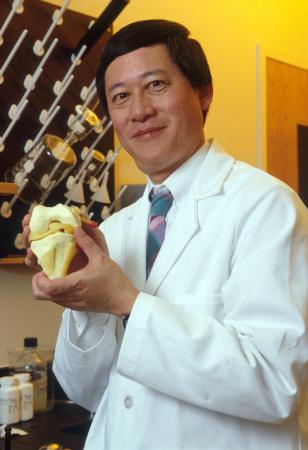The Atlantic Pediatric Device Consortium (APDC) has been awarded $3.5 million over five years by the U.S. Food and Drug Administration to assist scientists, clinicians and entrepreneurs in bringing medical devices for children to the market with greater efficiency.
The APDC is one of only seven FDA pediatric device consortia in the country. The center is a public-private partnership between the Georgia Institute of Technology, Emory University, Children's Healthcare of Atlanta, and now the Virginia Commonwealth University. The APDC’s mission is to increase the accessibility of medical devices that will improve the health of children.
The APDC was founded in 2011, and the new award is a second-phase grant. The latest funding positions Atlanta as a national leader in pediatric technologies. The award follows a $20 million joint investment by Georgia Tech and Children’s Healthcare of Atlanta, announced in June 2012, for developing technological solutions for improving children’s health.
The APDC’s mission is crucial to improving the health of children. Many medical devices used to treat children were designed and produced for adults, so they are not optimal for the pediatric physiology and anatomy. The APDC was created to help academic entrepreneurs and small businesses obtain the expertise that they need to commercialize their pediatric medical technologies.
“This additional round of funding will make a profound impact on the availability of medical devices designed especially for pediatric patients,” said David Ku, the Lawrence P. Huang Chair Professor of Engineering Entrepreneurship at Georgia Tech, who will lead the APDC.
Entrepreneurs struggle to commercialize pediatric technologies because the market for these devices is small compared to that of the adult medical device market. The APDC’s hope is that more efficient development of pediatric devices will improve the benefit-to-cost ratio for these products so that they can succeed in smaller markets.
To achieve this goal, the APDC provides expertise in device engineering, laboratory and animal model studies, design and analysis of clinical trials with access to relevant pediatric populations, and identification of the best clinical application for introduction of a technology into the marketplace.
APDC also has experience in prototyping, business planning, good manufacturing practices, regulatory affairs and intellectual property protection. The center’s advisors have been assisting projects since 2011 when APDC was awarded initial funding from the FDA.
“Our team’s combined expertise of over 80 years should help the community at large bring additional devices to market,” said Ku, who is also a Regents Professor in the George W. Woodruff School of Mechanical Engineering at Georgia Tech.
APDC’s co-directors are Barbara Boyan, dean of the School of Engineering at Virginia Commonwealth, and Wilbur Lam, assistant professor of in pediatrics with appointments at Emory University, the Aflac Cancer Center of Children’s Healthcare of Atlanta and the Wallace H. Coulter Department of Biomedical Engineering at Georgia Tech and Emory University. APDC’s associate director is Kevin Maher, M.D., a cardiologist and researcher specializing in pediatrics with appointments at the Children’s Healthcare of Atlanta, Sibley Heart Center and Emory University.
Media Contact
Megan McDevitt
Director Communications & Marketing
Petit Institute
Brett Israel
Research News
Georgia Institute of Technology
Keywords
Latest BME News
Jo honored for his impact on science and mentorship
The department rises to the top in biomedical engineering programs for undergraduate education.
Commercialization program in Coulter BME announces project teams who will receive support to get their research to market.
Courses in the Wallace H. Coulter Department of Biomedical Engineering are being reformatted to incorporate AI and machine learning so students are prepared for a data-driven biotech sector.
Influenced by her mother's journey in engineering, Sriya Surapaneni hopes to inspire other young women in the field.
Coulter BME Professor Earns Tenure, Eyes Future of Innovation in Health and Medicine
The grant will fund the development of cutting-edge technology that could detect colorectal cancer through a simple breath test
The surgical support device landed Coulter BME its 4th consecutive win for the College of Engineering competition.








